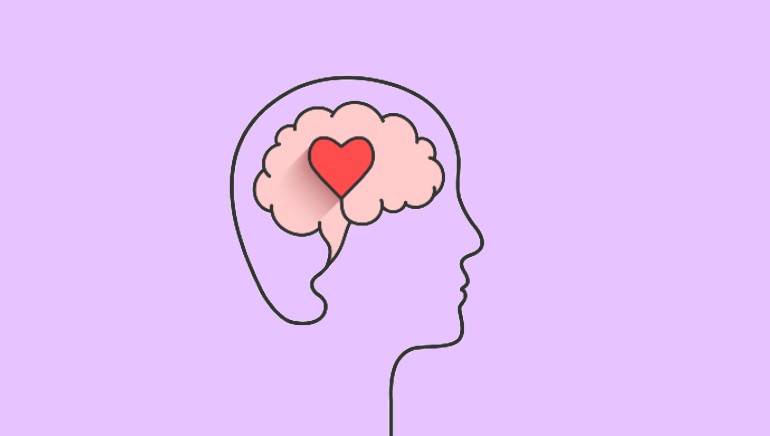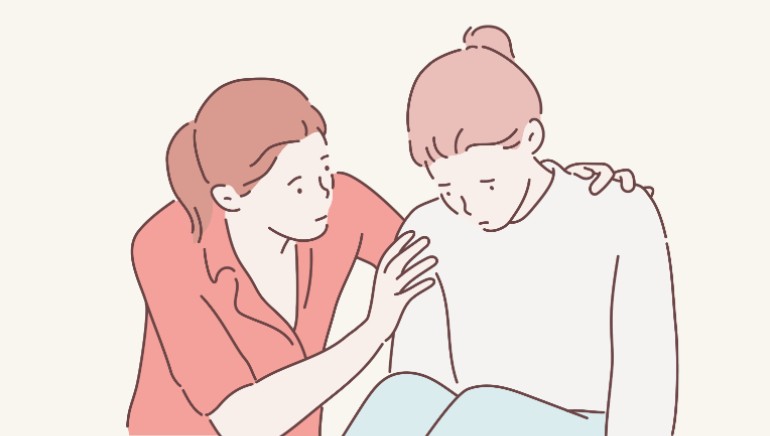
Ayurveda and holistic approach offer your mental health proper relaxation. In Ayurveda, mental health is defined as a part of mental state, intellectualism, and spiritual well-being. Ayurveda focuses on prevention through correction, like the correct diet, exercise, meditation, and cultivation of the right attitude. It offers a complex array of therapeutic techniques and natural medicines to restore balance and harmony, and treat issues like depression.
Our body is a temple that needs care. Our body contains toxins which in Ayurveda is called Ama. Psychologically, Ama arises from holding a poor lifestyle as well as a negative emotion. The guiding principle of Ayurveda is that our mind requires boosting and freedom from the torture of negativity and sickness, bringing it into balance and extending that balance to the body.
Though Ayurveda is very effective in most mental illnesses, let’s talk about depression.

Depression is a psychological well-being problem that can affect how you do things like talking, rest, eating, how you feel about yourself, and how you contemplate things.
The seriousness of the symptoms of depression varies from individual to individual and over time. An individual enduring major depression encounters few or all of the indications mentioned below or many more.
• Persistent pity and uneasiness
• Feeling of misery, negativity, responsibility, uselessness, powerlessness
• Loss of interest in everyday exercises that they used to cherish before
• Laziness and sensation of faintness to do the things
• Difficulty in concentrating, remembering, and making decisions
• Disturbed rest
• Developing of dietary issues, either overeating or loss of hunger
• Suicidal contemplation or dread of loss of friends and family
• Restlessness and irritability
• Persistent side effects that don’t react to therapy, like migraines, digestive issues, and chronic pain.
Side effects of wretchedness have been effectively treated or overseen by the specialists of our center utilizing Ayurvedic treatment strategies.
Understanding more specific imbalances and how to address them, the three doshas provide an important context for our exploration.
Similar to the three maha gunas, the three doshas each have a significant part to play in our general well-being. When provoked, each one of them will tend to cause a particular scope of imbalance that can show either in the actual body or in the more unobtrusive domains.
Thus, Vata, Pitta, and Kapha each have a particular flavour of influence on the mind, emotions, and overall consciousness, and each of them can either support or undermine our overall health — it all depends on whether or not they are in balance.
Select Topics of your interest and let us customize your feed.
PERSONALISE NOW
Vata dosha, which oversees the nervous system and the mind, is principally made of the air and ether components. Not unintentionally, the mind is likewise primarily made out of the air and ether components, making it particularly vulnerable to Vata imbalances.
Vata imbalances, on the other hand, normally show instability, agitation, or touchiness in the psyche.
Aggravated Vata can cause quick changes in mindset, dread, uneasiness, compression, a feeling of being dissipated, an absence of bearing, spaciness, ungroundedness, over-the-top speed in contemplation and words, and a feeling of depression or seclusion.
Pitta dosha, which oversees knowledge and insight, comprises the fire and water components. Pitta is firmly connected with the minute matter of the cerebrum and has a vital association with the brain.
Our pitta is by and large connected with boldness, certainty, self-control, knowledge, administration, a feeling of vision, acknowledgment, happiness, fulfillment, energy, collaboration, and the ability to give up.
Kapha dosha, which governs design and lubrication in the body, is the combination of water and earth components. Kapha is firmly connected with the white matter of the mind and is emphatically associated with our memory.

The Ayurvedic tradition is a holistic way to deal with well-being and health. All things considered aggravations of the brain should be perceived according to an expansive point of view that incorporates our physical, mental, enthusiastic, and surprisingly otherworldly well-being.
Reestablishing harmony to the channel of the brain can include an assorted cluster of remedial techniques. It is positively ideal to look for the direction of a prepared Ayurvedic specialist to direct you in your excursion.